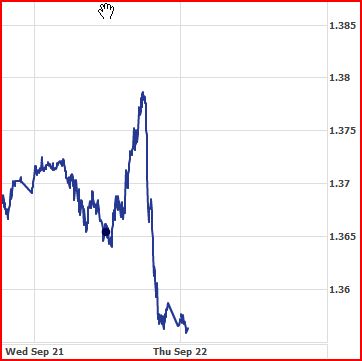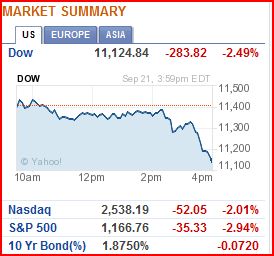More on China bashing
My recent post on China elicited lots of comments:
1. Some argued that China steals far more jobs from the US than northern Europe, despite the bigger current account surplus in northern Europe. This argument seems based on a sort of crude mercantilist model that even Paul Krugman couldn’t stomach. If there is any respectable argument that CA surpluses steal jobs (and I doubt there is) it is based on the impact on world saving, not whether that particular country happens to sell lots of goods to the US. I could easily argue the opposite, that if we didn’t buy low tech goods from China, we’d buy them from other Asian countries. But if Germany didn’t sell turbines to China, the Chinese would buy those turbines from the US. That argument would also be bogus, despite is superficial plausibility. Again, in the Keynesian model it’s the impact on world saving that matters, nothing else.
2. A second argument was that the Chinese surplus reflected government policy decisions. They did acknowledge this was true of Norway, but suggested that a Sovereign Wealth Fund was a valid way of addressing the oil bonanza. But as this study of the Nordic countries shows, the high savings rates do reflect government policies:
The fiscal performance of the four leading Scandinavian economies, both prior to and during the Great Recession, has been outstanding. The headline budget deficits for all four economies peaked below three percent of GDP – compared with 11 percent of GDP in the US and the UK. The underlying budget balance – adjusting for the economic cycle – remained in surplus in three of the Scandinavian economies and was only slightly negative in Norway. The comparable US and UK deficits were nearly nine percent of GDP. Much of this success can be attributed to pro-market reforms, such as the introduction of fiscal rules, following the early 1990s Scandinavian economic crisis.
The northern European countries also tax consumption more heavily than savings. I don’t know all the details, but they have lower corporate taxes than the US, and some have no capital gains taxes, while others have no inheritance taxes.
3. I also find the rhetoric used by many commenters in the media and/or comment sections to be extremely repulsive. There’s a sort of “if we get tough with the Chinese they’ll bend to our will” theme. Replace ‘Chinese’ with ‘Africans’ and see how that sounds. In all of American history I can think of only one example where punitive trade barriers against foreign countries were appropriate; Japan and Germany during WWII. Otherwise sanctions usually make problems worse, not better. In WWII we wanted sanctions to hurt their economies, but that shouldn’t be our policy in anything but the most dire scenario.
4. I also got criticism for pulling the race card. I see a steady stream of criticism directed at East Asia, which is far greater than what’s directed at Europe. When I was young the rhetoric against Japan was on a completely different level of viciousness from what was directed at Germany, despite the fact that Germany also ran large deficits. So there is nothing new about the focus on China, despite Northern Europe’s much larger CA surplus. Many American protectionists claim that countries like Korea “cheated,” that they only got rich via mercantilist trade policies. This despite the fact that Korea ran persistent trade deficits during its high growth years (1970s and 1980s). Facts don’t matter, all that matters is that we perceive the East Asians to be untrustworthy, so they must be cheating at trade. Otherwise how could they be joining the developed world? Nor does the lack of trade barriers in Hong Kong and Singapore matter, critics will find some obscure way they indirectly intervene in trade, as if Western countries aren’t riddled with similar interventionist policies.
5. If we are going to put tariffs on countries whose reckless governmental policies are hurting the rest of the world, why not put tariffs on Greece and Italy? And how about the US? Doesn’t our global warming policy hurt the world? How about our decision to launch a war against Iraq? How about our reckless banking policies, which helped trigger a world-wide financial crisis? How about the Fed’s tight money policy? As David Beckworth points out, the Fed is a monetary superpower, whose actions affect the rest of the world much more than the policies of other central banks. Don’t we need to be “taught a lesson” just like the Chinese?
6. The only even semi-respectable argument against China’s CA surplus is the Keynesian paradox of thrift argument used by Krugman. What’s so comical about this situation is that the average “man on the street” China-basher would be totally perplexed by the claim that saving is bad. “You mean we are attacking the Chinese for being too thrifty, not following the foolhardy low-saving policies of our government?” Yup.



